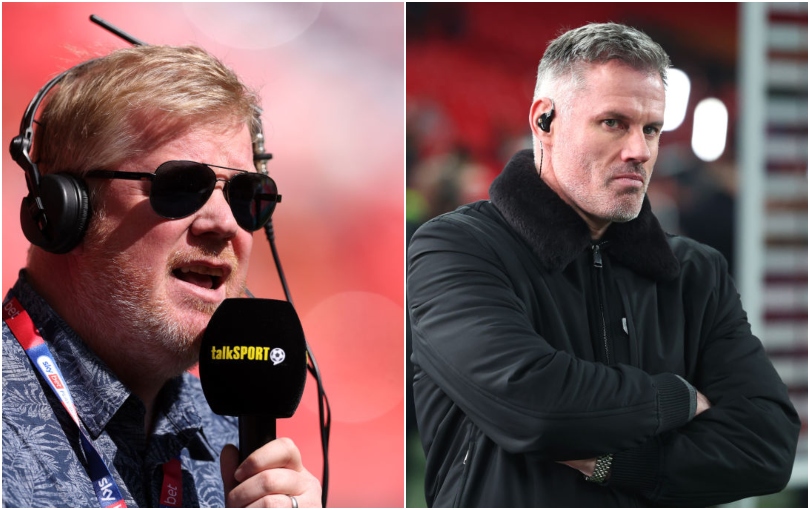Money, ambition and betrayal: the bitter story of Jorge Jesus’s Benfica walkout
Who’d leave behind the nation’s biggest club to join their less illustrious city rivals? Jesus, of course – and that’s just the start of it…
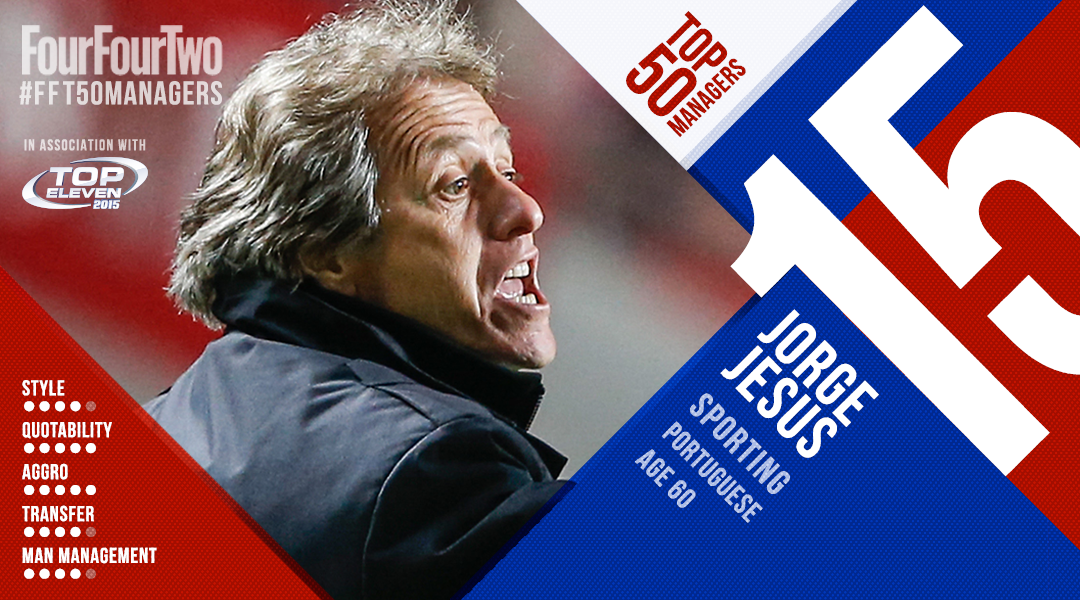
We are in summer 2009. Liverpool appoint an odd-looking and eccentric journeyman manager. Said manager goes on to win three Premier League titles and restore the club’s domination of the domestic game, all the while imprinting upon his team a swashbuckling brand of high-octane attacking football befitting its glorious past. Then he walks out on them for cross-town rivals Everton.
It may be a stretch for even the most fertile of imaginations, but that’s what’s just happened in Portugal, with Jorge Jesus dramatically defecting from Lisbon giants Benfica for the club a couple of miles down the road, Sporting. Most Benfica fans quickly arrived at the conclusion that the club’s failure to retain him is a blunder of historical proportions. That he joined their fierce cross-town rivals only made it worse. The fallout has been ugly.

Grateful for ingratitude
I’m grateful to Jorge Jesus for the ingratitude he showed us. He showed us we deserve to change
“Next year we will have a coach committed to Benfica and not one only interested in his ego and bank balance,” blurted Benfica director of communications João Gabriel on Twitter soon after the news became public. “I’m grateful to Jorge Jesus for the ingratitude he showed us. He showed us we deserve to change.” Benfica president Luís Filipe Vieira issued the barbed comment: “I’m disappointed but I’m not surprised.”
The furious reaction of the Benfica hierarchy to what they see as a cardinal betrayal is perhaps understandable. But talk of ingratitude has more than a touch of the pot calling the kettle black about it. Since his appointment in summer 2009, Jesus single-handedly lifted Benfica out of the darkest phase in their history, hoisting them back to the top of Portuguese football and shattering FC Porto’s seemingly unshakeable hegemony of the Primeira Liga.
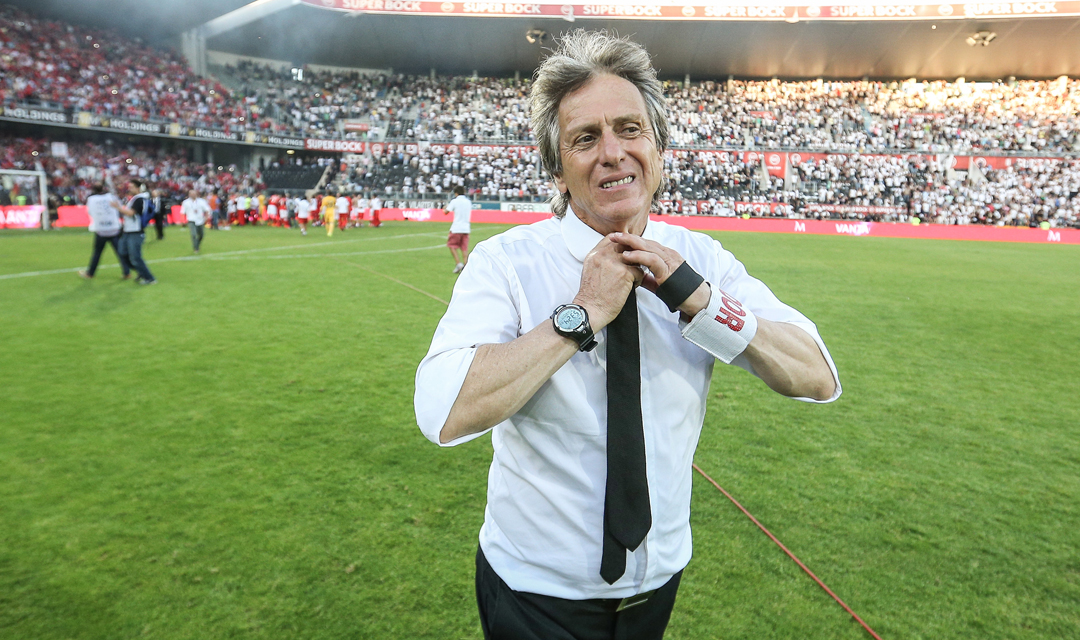
Benfica had claimed a miserly one league title in the 15 years before JJ’s arrival, while all-conquering Porto were crowned champions 11 times during that decade-and-a-half. Jesus changed all that. As he said in May after Benfica had clinched their first back-to-back league titles for 31 years: “Since I’ve been here we have always either won the title or been in the discussion.”
So how has it happened? Three basic motives lie behind the bombshell that shook Portuguese football to its core: money, ambition and sentiment.
Get FourFourTwo Newsletter
The best features, fun and footballing quizzes, straight to your inbox every week.
1) Money
Jesus brought Benfica on-field success, but also off the field too as transfer revenue from players he expertly developed gushed into the coffers and a reawakened fan base flooded back through the turnstiles. Benfica’s curious response? To propose a reduction in his wages. The Lisbon outfit deemed it unjustified to maintain Jesus’s reported €4 million/year contract. Sporting, on the other hand, pushed out the boat and put a €6 million-per-season, three-year deal on the table to get their man.
2) Ambition
Jesus never tires of championing his own merits. “I’m the best coach in the world. I don’t believe there’s anyone who knows more about football than me,” he once proclaimed. But the coach has had to share plaudits with club president Vieira for the remarkable turnaround in fortunes at Benfica, whose generous investment some believe was as important a factor in the famous old club’s resurgence as the role Jesus played.
So what better way to settle arguments on this contentious point than by triumphing in the green half of the city? If Jesus brings similar success to Sporting, a club that‘s won the Portuguese title only twice in the last 33 years – and not since the turn of the millennium – he will go down as one of the greatest Portuguese coaches of all time.

3) Sentiment
Jesus is an ex-Sporting player, having come through the youth ranks, and a known fan of the club, attending games with supporters even when he was managing other clubs. His father Virgolino de Jesus, a Sporting player in the 1940s, pleaded with his son to coach the Lions one day.
Upon officially announcing his appointment, Sporting posted the following tweet of a teenage Jesus kitted out in Sporting’s colours with the message: “Welcome home, Jorge Jesus.”
Bem-vindo a casa, Jorge Jesus! #BemVindoJesuspic.twitter.com/VLWvs5Vv0o
— Sporting CP (@Sporting_CP) June 5, 2015
The strong emotional connection was again evident when Jesus was officially presented in the Alvalade Stadium and almost reduced to tears as images of his past at the club were shown on the giant screen.
“We have to awaken this sleeping giant! From now onwards Sporting will be in contention to win all the trophies in Portugal!” shouted Jesus, to the delight of the thousands of fans who’d filed into the stadium to welcome him.
Presidential pleasing
But despite pulling off this incredible coup, there’s no guarantee that it will bring Sporting the success their abrasive young president Bruno de Carvalho desperately craves. The 43-year-old has shaken up the club from top to bottom since his election victory in March 2013, and while it’s true that he’s re-enthused the club’s fans and overseen improved results on the pitch, his hard-nosed single-mindedness and roughshod methods have earned him a legion of enemies both inside and outside the club.
An example of his ruthless streak is seen in the way he handled the troublesome matter of still having the previous head coach in place upon Jesus’s appointment. Marco Silva led Sporting to their first trophy in seven years with a Portuguese Cup triumph, suffered fewer defeats in the league than champions Benfica, and oversaw a creditable Champions League campaign. It wasn’t good enough for Carvalho, who upon failing to reach an amicable agreement to rescind the remaining three years of Silva’s contract, summarily ordered the compilation of a 400-page document outlining disciplinary breaches with a view to sacking him.
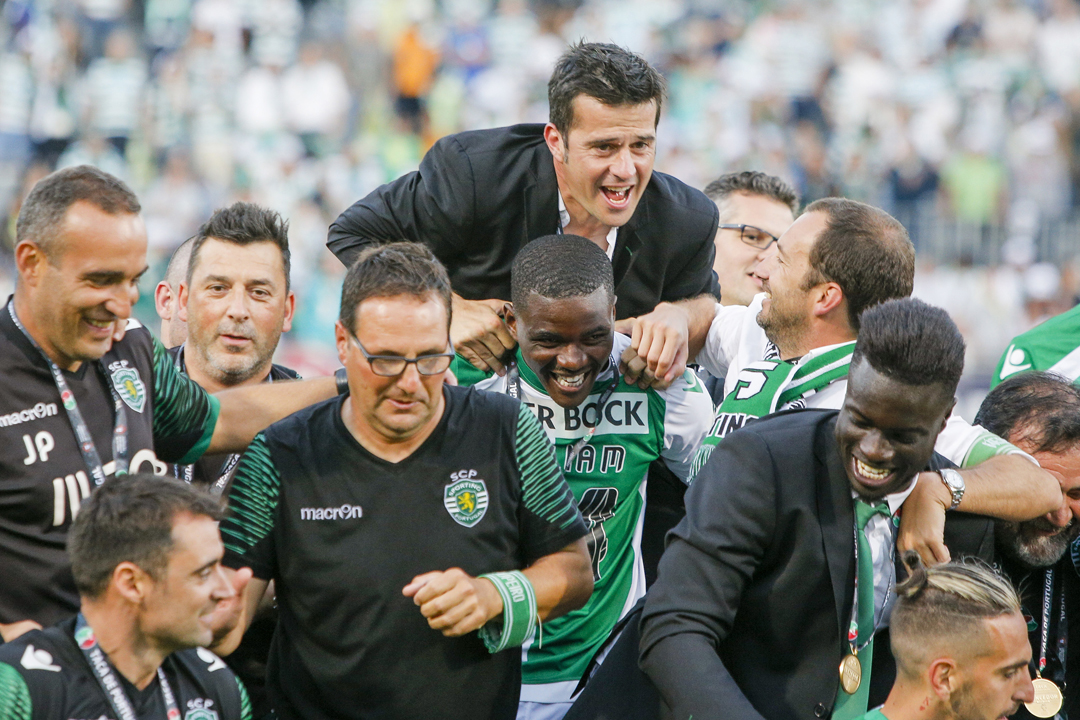
“Lunatic asylum”
Unhappy with what they perceive as a style that brings little dignity to an institution steeped in over a century of history, former Sporting dignitaries have been queuing up to lambast the president.
“Bruno de Carvalho belongs in a lunatic asylum,” exclaimed former president Dias da Cunha. “This man needs psychological help,” screamed Abrantes Mendes, a beaten rival of Carvalho’s for the presidential chair. “Bruno de Carvalho is a psychiatric case,” bemoaned Vasco Lourenço, a former member of the Conselho Leonino, Sporting’s advisory board.
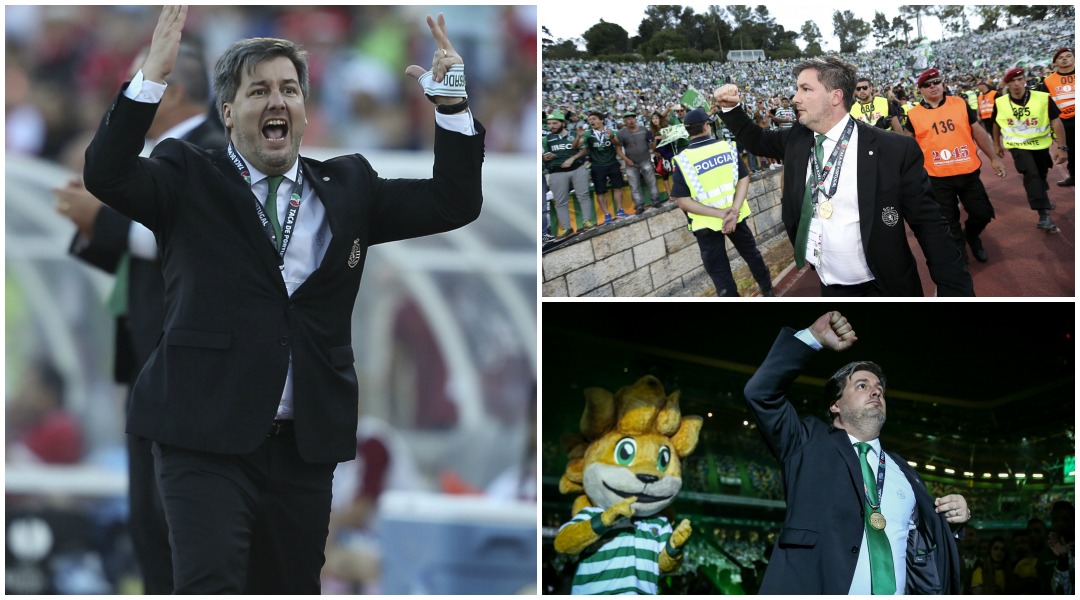
Predictably, Carvalho gave short shrift to the criticism, pointedly remarking that his predecessors had succeeded only in running the club to near ruin. But with Jesus himself something of a specialist at putting people’s noses out of joint, is this duo a ticking time bomb?
Tick, tick, tick...
I think it will be very hard to combine these two men for the amount of time necessary for something good to come out of it
Portuguese football journalist Vasco Mota Pereira, a known champion of Jesus’s coaching excellence, has his doubts about whether a partnership between two such combustible personalities can flourish under pressure.
“I think it will be very hard to combine these two men for the amount of time necessary for something good to come out of it,” he says. “It takes time for Jesus to build the team he wants, it takes time for the players to learn his methods and I’m not sure Bruno de Carvalho will afford him it with the patience needed, and most of all without meddling in football issues. I’m not sure there won’t be some match where they both explode.”
The curtain has only just come down on the 2014/15 football season in Portugal, but fans in this football-crazed country can’t wait for the next one to start. It promises to be quite something.
#FFT50MANAGERS See our full list of the top 50 managers and features on them here
